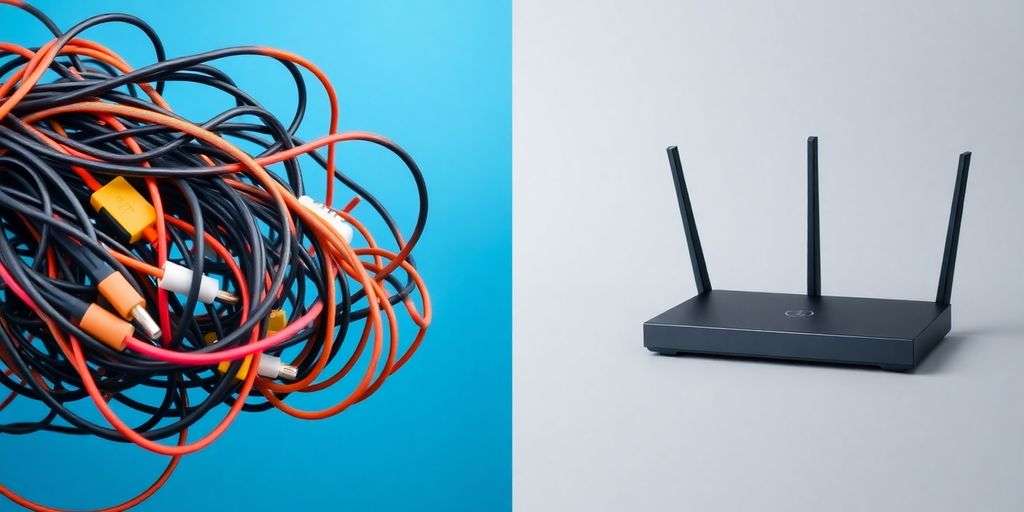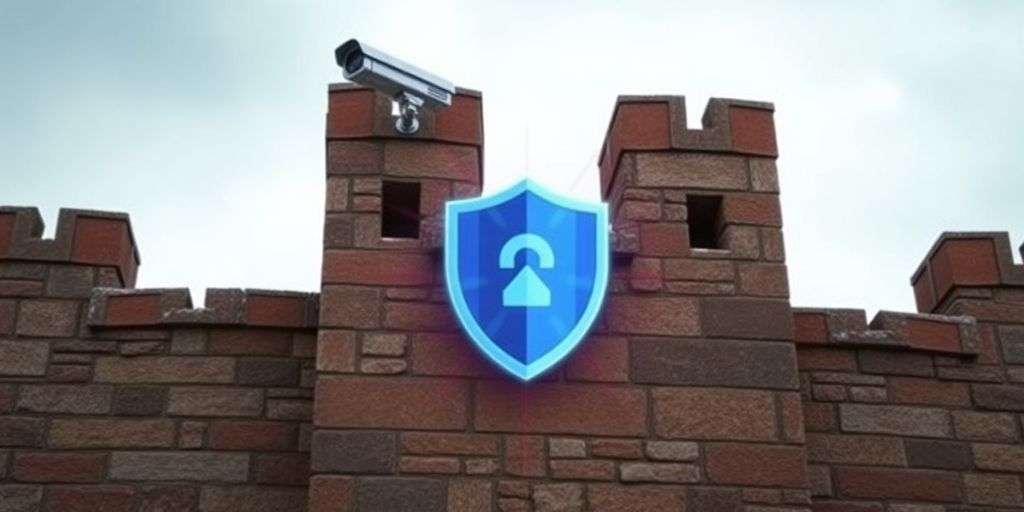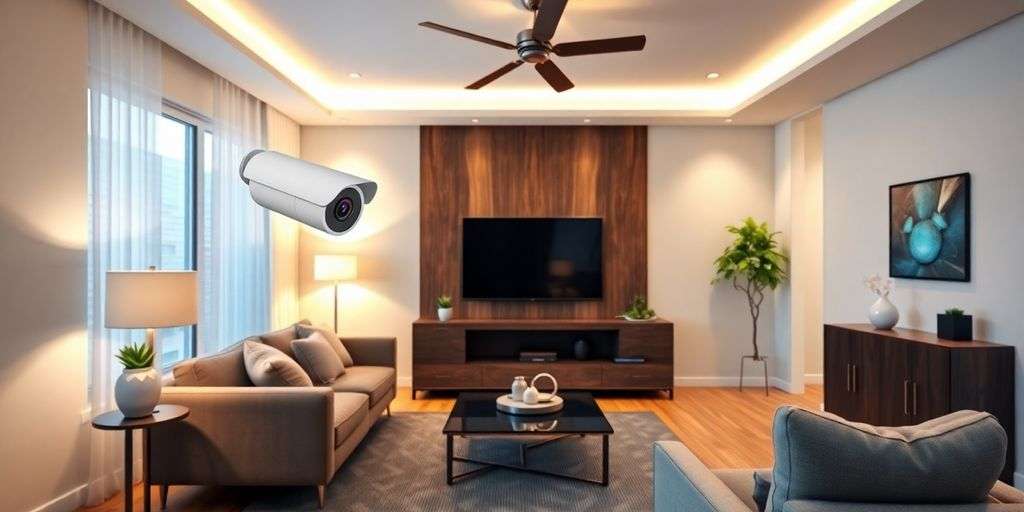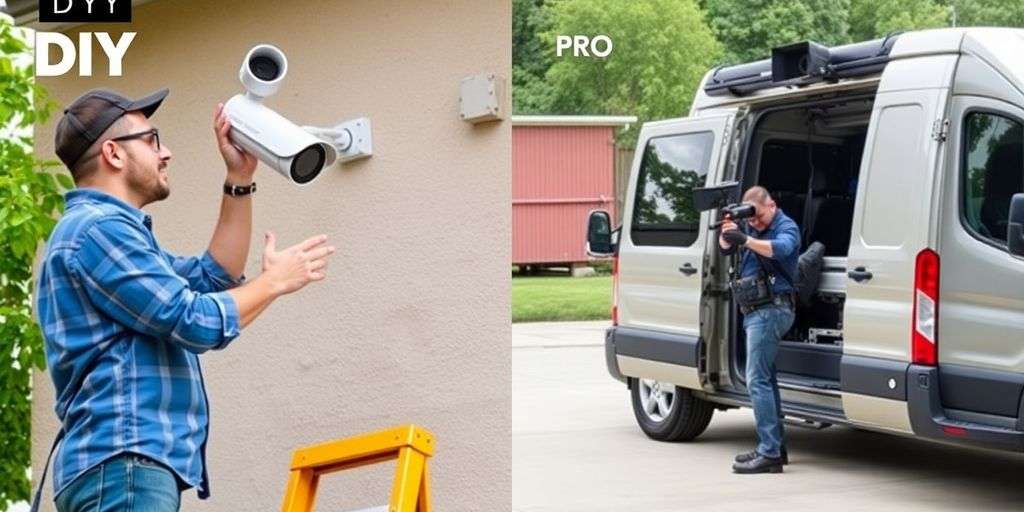Understanding Wired vs Wireless CCTV
Key Differences Between Wired and Wireless CCTV
Wired and wireless CCTV systems serve the same purpose of surveillance but differ significantly in their setup and functionality. Wired systems use cables to transmit data, ensuring a stable connection. In contrast, wireless systems rely on radio signals, which can be affected by interference.
Advantages of Wired CCTV Systems
Wired CCTV systems offer several benefits:
- Reliability: They provide a consistent connection, reducing the risk of signal loss.
- Security: Wired connections are generally more secure, making it harder for intruders to intercept data.
- Quality: They often deliver higher video quality due to direct connections.
Benefits of Wireless CCTV Solutions
Wireless CCTV systems also have their advantages:
- Flexibility: They can be installed in locations without the need for extensive cabling.
- Ease of Installation: Setting up a wireless system is often quicker and less invasive.
- Scalability: Adding more cameras is simpler without the constraints of wiring.
Common Misconceptions About Wired and Wireless CCTV
There are several misconceptions regarding these systems:
- Wired systems are always better: While they are reliable, wireless technology has improved significantly.
- Wireless systems are insecure: With proper encryption, wireless systems can be quite secure.
- Wired systems are too complicated to install: Many modern wired systems are designed for easy installation.
In conclusion, both wired and wireless CCTV systems have their unique strengths and weaknesses. Understanding these can help you make an informed decision based on your specific needs.
For those considering a wired system, remember that reliability is key, while wireless options offer greater flexibility and ease of use.
| Feature | Wired CCTV | Wireless CCTV |
|---|---|---|
| Installation | More complex | Easier |
| Signal Stability | High | Variable |
| Security | Generally higher | Can be secure |
Performance and Reliability
Speed and Stability of Wired Connections
Wired connections are often regarded as the gold standard for speed and stability. They provide a direct link that ensures consistent performance. In contrast, wireless connections can fluctuate based on various factors, such as distance from the router and the number of devices connected.
| Connection Type | Average Speed (Mbps) |
|---|---|
| Wired | 395 |
| Wireless | 126 |
Latency Issues in Wireless Networks
Latency can significantly affect user experience, especially in activities like gaming. Wired connections typically offer lower latency, ensuring smoother interactions. Wireless networks, however, can experience delays, akin to a game of telephone where messages slow down as they pass through more players.
Reliability Factors for CCTV Systems
When it comes to reliability, wired systems have a clear advantage. They are less susceptible to interference from other devices and environmental factors. Wireless systems, while convenient, can face challenges such as:
- Interference from other wireless signals
- Physical barriers like walls
- Distance from the router
Impact of Interference on Wireless CCTV
Interference can be a significant hurdle for wireless CCTV systems. Proper planning and installation can mitigate these issues. Ensuring that the system is set up in an optimal environment can lead to a more reliable connection.
In summary, while both wired and wireless systems have their merits, understanding their performance and reliability is crucial for making an informed choice.
Installation and Maintenance
Ease of Installing Wired CCTV
Installing wired CCTV systems can be straightforward, especially in new buildings. The process typically involves running cables through walls and ceilings. Here are some key points to consider:
- Planning the layout: Determine where cameras will be placed.
- Cable management: Use conduits to protect cables.
- Professional installation: Hiring experts can ensure optimal setup.
Setting Up Wireless CCTV Systems
Wireless CCTV systems offer flexibility in installation. However, they require careful planning to avoid issues. Here are steps to follow:
- Choose the right location: Ensure a strong signal for cameras.
- Connect to power: Some cameras may need a power source.
- Configure the network: Set up the system using the manufacturer’s guidelines.
Maintenance Requirements for Wired vs Wireless
Both wired and wireless systems need regular maintenance, but their requirements differ:
- Wired systems: Check for cable wear and tear.
- Wireless systems: Monitor battery life and signal strength.
- Regular updates: Keep software up to date for security.
Troubleshooting Common Issues
Common issues can arise with both types of systems. Here are some troubleshooting tips:
- Wired issues: Check connections and power supply.
- Wireless issues: Look for interference from other devices.
- Consult manuals: Manufacturer guides can provide specific solutions.
Regular maintenance is essential for ensuring the longevity and effectiveness of your CCTV system.
In conclusion, understanding the installation and maintenance needs of both wired and wireless CCTV systems can help you make informed decisions. Whether you opt for the reliability of wired systems or the flexibility of wireless, proper setup and upkeep are crucial for optimal performance. Remember, professional installation can save time and prevent future issues, making it a worthwhile investment.
Choosing the Right CCTV System for Your Needs

Assessing Your Security Requirements
When selecting a CCTV system, it is essential to first evaluate your security needs. Consider the following:
- Location: Identify areas that require monitoring.
- Footage Quality: Determine the resolution needed for clear images.
- Coverage: Assess the number of cameras required to cover all angles.
Cost Considerations for Wired and Wireless CCTV
Understanding the costs involved is crucial. Here’s a brief comparison:
| Type | Initial Cost | Installation Cost | Maintenance Cost |
|---|---|---|---|
| Wired | Higher | Moderate | Low |
| Wireless | Lower | Low | Moderate |
Wired systems often have higher initial costs but lower maintenance, while wireless systems can be more affordable upfront but may incur higher maintenance costs over time.
Scalability and Future-Proofing
When choosing a CCTV system, consider how easily it can be expanded in the future. A good system should allow for:
- Adding more cameras without significant upgrades.
- Integrating with other security systems.
- Upgrading technology as it evolves.
Expert Recommendations
Consulting with professionals can provide valuable insights. For instance, security guru offers expert CCTV installation services, ensuring optimal surveillance tailored to your needs. Their team can guide you in selecting the right cameras, ensuring effective security.
Choosing the right CCTV system is not just about technology; it’s about ensuring peace of mind and safety for your property.
Conclusion
In wrapping up our exploration of wired and wireless connections, it’s clear that both have their unique strengths. Wired connections offer speed and reliability, making them perfect for gamers and heavy internet users who need a steady link. On the other hand, wireless connections shine in their convenience and flexibility, allowing you to connect multiple devices without the hassle of cables. Ultimately, the best choice depends on your specific needs. Whether you prefer the speed of a wired connection or the freedom of wireless, understanding these options helps you navigate your digital world more easily.
Frequently Asked Questions
What are the main differences between wired and wireless CCTV systems?
Wired CCTV systems use cables to connect cameras to a central recording device, while wireless systems send video signals through the air. This means wired systems often offer more stable connections, whereas wireless systems are easier to install and more flexible.
Are wired CCTV systems more reliable than wireless ones?
Yes, wired CCTV systems are generally more reliable. They are less affected by interference from other devices, which can be a problem for wireless systems. This makes wired setups better for critical security applications.
Can I switch from a wired to a wireless CCTV system later?
Yes, you can switch from a wired to a wireless CCTV system later on. However, it’s important to consider that this may involve additional costs and installation efforts to set up the new system.





